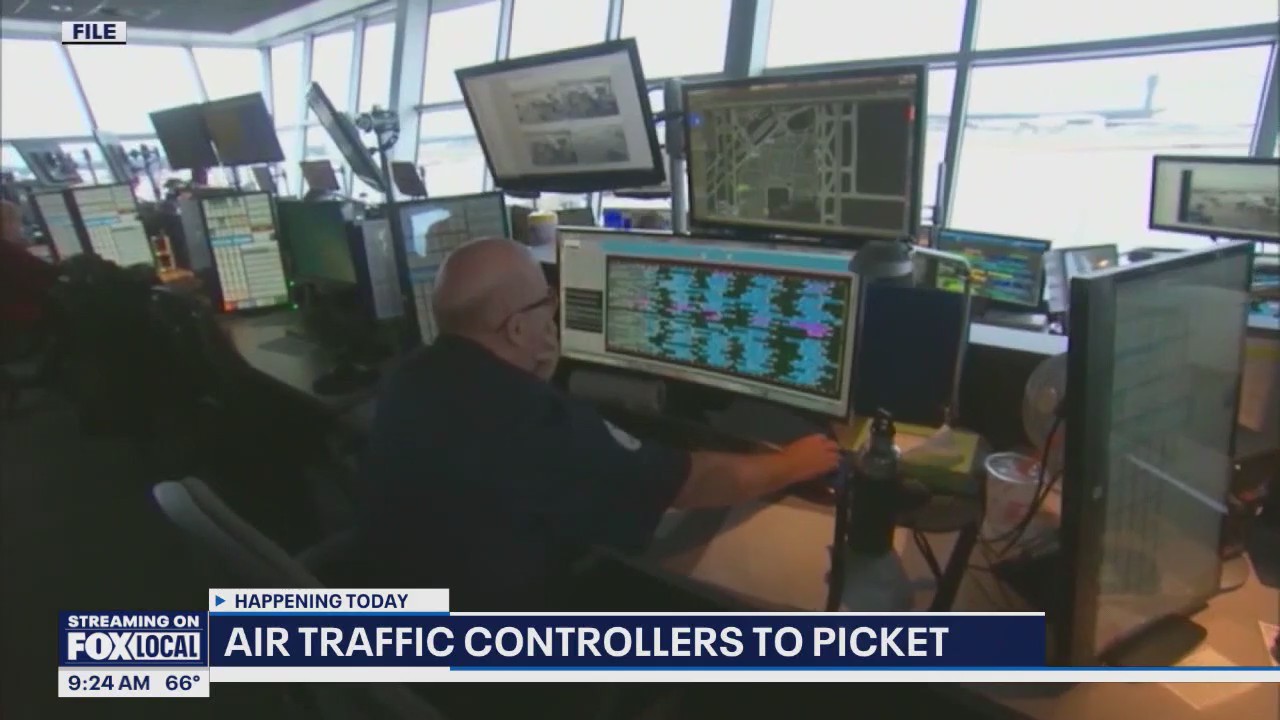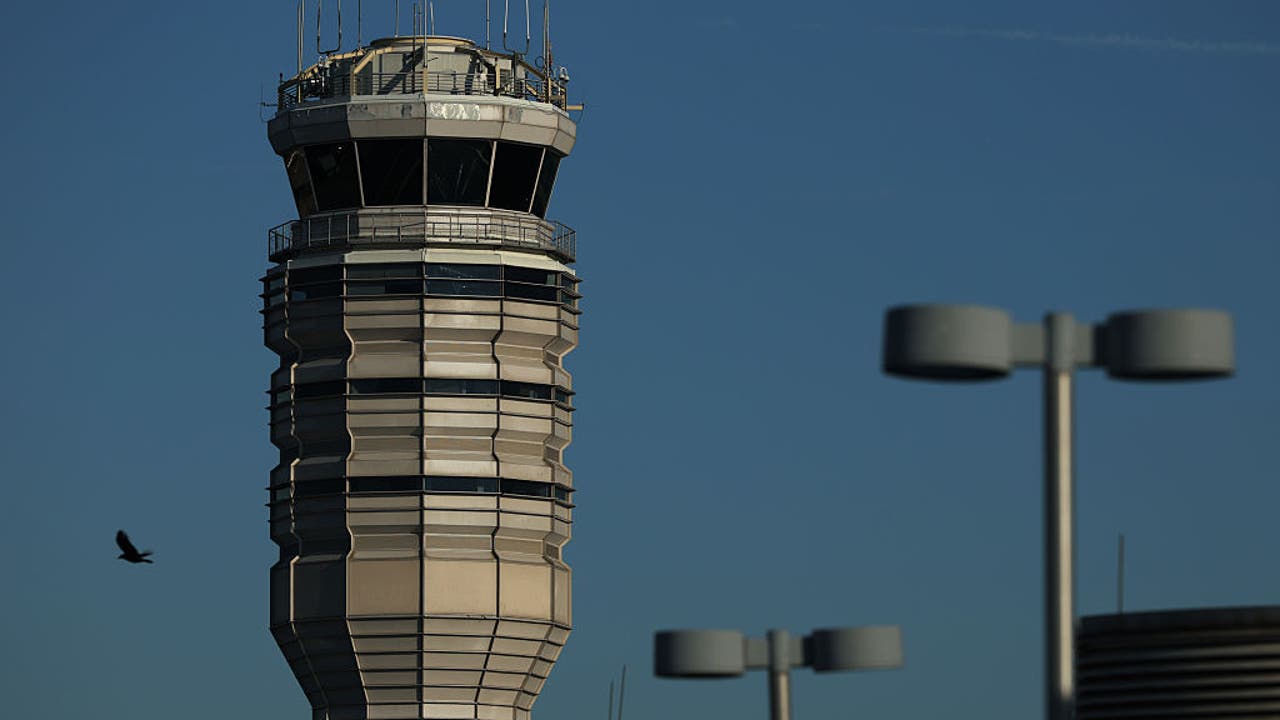 Air traffic controllers picketing at LAX
Air traffic controllers picketing at LAX
The action took place on Tuesday, October 28, the day air traffic controllers and other aviation safety professionals received their first zero pay check despite continuing to work.
LOS ANGELES – As the government shutdown entered its fourth week, the crisis level of air traffic controller staffing shortages intensified, leading to delays that experts say won’t ease until workers receive pay.
What we know:
The informational leafletting was organized by the National Air Traffic Controllers Association as the government shutdown entered its fourth week. The action took place on Tuesday, October 28, the day air traffic controllers and other aviation safety professionals received their first zero pay check despite continuing to work.
Controllers are currently working mandatory overtime—six days a week, ten hours a day—and have been sharing their concerns about the financial stress on social media since the shutdown began.
The association stated that during the last shutdown, many controllers had to work second jobs to cover their bills, leading to significant stress and fatigue.
SUGGESTED:
Participating professionals engaged with travelers to explain that the shutdown introduces unnecessary risk to the National Airspace System (NAS) and is detrimental to efficiency.
Leaflets distributed detailed how the shutdown impacts the aviation system, negatively affects dedicated professionals, and threatens the $1.5 trillion the aviation industry contributes annually to the U.S. economy.
The leafletting campaign also highlighted that the shutdown is expected to worsen a preexisting controller staffing crisis and is causing the halting of critical modernization projects at the FAA.
What they’re saying:
The head of the Air Traffic Controllers Union, Nick Daniels, said that already some controllers have taken on second jobs delivering DoorDash or driving for Uber to earn cash to help them pay their bills while the shutdown drags on.
“As this shutdown continues, and air traffic controllers are not paid for the vital work that they do day in and day out, that leads to an unnecessary distraction,” Daniels said. “They cannot be 100% focused on their jobs, which makes this system less safe. Every day that this shutdown continues, tomorrow, we’ll be less safe than today.”
Air Line Pilots Association President Capt. Jason Ambrosi said in a message to his members that he’s concerned about air traffic controllers and other federal employees.
SUGGESTED:
“The safety of millions of passengers and tens of thousands of tons of cargo is in the hands of these workers. Worrying about how they’ll make their mortgage payment or pay for day care is an added stress they do not need,” Ambrosi said.
Rep. Sam Graves, who is Chairman of the House Transportation and Infrastructure Committee, urged Democrats to support the GOP bill to fund the government to help ensure the safety of the flying public.
“Our aviation system has operated safely throughout the shutdown, but it’s putting an incredible and unnecessary strain on the system, and on our air traffic controllers, flight crews, and many other aviation professionals,” said Graves, a Missouri Republican.
The backstory:
The ongoing government shutdown continues to disrupt flights at times and put pressure on air traffic controllers who are working without pay.
Many Federal Aviation Administration (FAA) facilities are so critically short on controllers that just a few absences can cause disruptions, and Transportation Secretary Sean Duffy has said that more air traffic controllers have been calling in sick since the shutdown began. Early on in the shutdown, there were a number of disruptions at airports across the country, but for the past couple of weeks, there haven’t been as many problems.
Duffy said the disruptions and delays will only get worse next week after Tuesday’s payday arrives and “their paycheck is going to be a big fat zero.” He said controllers are telling him they are worried about how to pay their bills and frustrated with the shutdown.
The shutdown is having real consequences, as some students at the controller academy have already decided to abandon the profession because they don’t want to work in a job they won’t be paid for, Duffy said.
That will only make it harder for the FAA to hire enough controllers to eliminate the shortage, since training takes years. He said that the government is only a week or two away from running out of money to pay students at the academy.
The Source: Information for this story is sourced from direct statements and interviews with key stakeholders, including the head of the air traffic controllers union (Nick Daniels), the president of the Air Line Pilots Association (Capt. Jason Ambrosi), and the Chairman of the House Transportation and Infrastructure Committee (Rep. Sam Graves). Additional facts and context were drawn from statements by the Transportation Secretary (Sean Duffy) and public material released by the National Air Traffic Controllers Association about their leafletting campaign. The Associated Press contributed.
Travel NewsTravelEconomyTransportation
